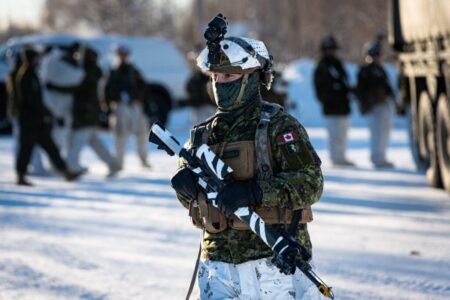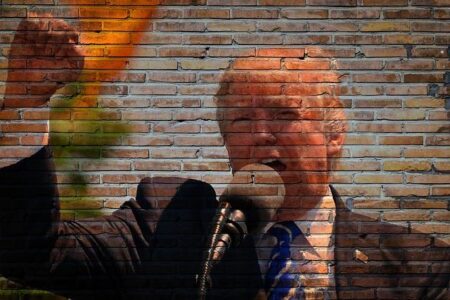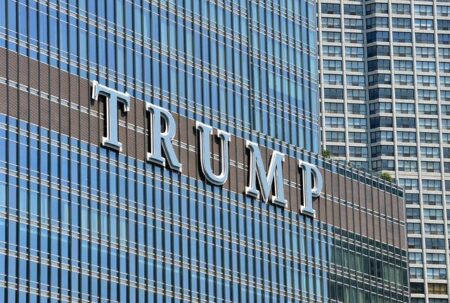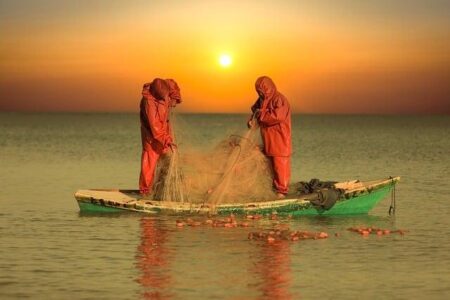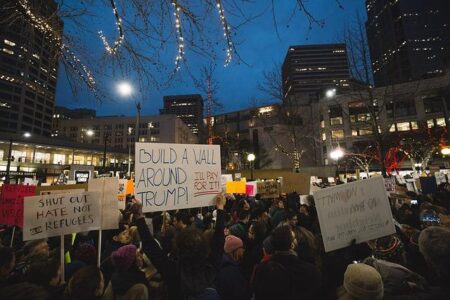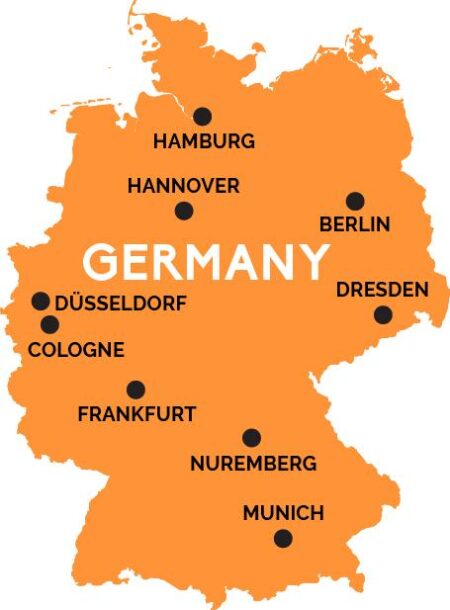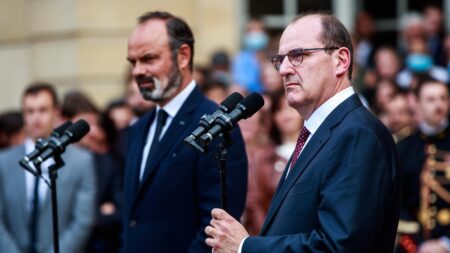As geopolitical tensions rise over Arctic sovereignty, the Canadian military intensifies its presence in the region, conducting exercises and patrolling icy waters. This strategic maneuver aims to assert Canada’s claim and strengthen its Arctic defense capabilities.
Browsing: international relations
A recent missile strike by Russian forces on Ukraine has resulted in at least 14 fatalities and 37 injuries, according to officials in Kyiv. The attack comes amid ongoing tensions, further escalating the conflict and humanitarian crisis in the region.
In a surprising turn of events, former President Donald Trump has announced a proposed plan to “liberate” Germany from what he describes as bureaucratic constraints imposed by the EU. This controversial stance has ignited debates over sovereignty and transatlantic relations.
Emmanuel Macron is navigating a significant diplomatic comeback as he shifts focus from France’s domestic challenges to revitalizing Europe’s defense strategy. His efforts aim to strengthen regional security amid rising global tensions and ongoing geopolitical shifts.
In his latest piece for The Guardian, Paul Daley critiques Australia’s unwavering sycophancy towards Donald Trump, arguing that this blind allegiance threatens the nation’s diplomatic integrity and moral standing on the global stage.
Germany’s leader, Friedrich Merz, has pledged to enhance national defense capabilities, declaring he would do “whatever it takes” to strengthen the military. This commitment follows ongoing security concerns in Europe, reflecting a shift towards increased military readiness.
The U.S. has enacted new tariffs on imports from Canada and Mexico, alongside increased tariffs on Chinese goods. This move, outlined by the law firm Clark Hill, aims to address trade imbalances and bolster domestic industries amid ongoing economic tensions.
Lockheed Martin has secured a significant contract to assist in the maintenance and upgrades of Argentina’s F-16 fighter jets. This collaboration aims to enhance the operational capabilities of the Argentine Air Force, reinforcing regional defense strategies.
The United States voiced its opposition to a recommendation for “sustainable” aviation fuels during a recent International Civil Aviation Organization meeting. The Department of State emphasized concerns over the compatibility and feasibility of the proposed measures.
In a significant diplomatic overture, the Trump administration called on Iran to resume nuclear negotiations. This request signals a potential shift in U.S. foreign policy, as officials seek to address concerns over Iran’s nuclear ambitions amid rising tensions.
Second Lady Usha Vance is set to embark on an official trip to Italy, highlighting diplomatic ties and cultural exchange. The visit aims to strengthen international relations and will include meetings with key officials and discussions on collaborative initiatives.
China has issued a stern warning to the United States against any attempts at containment, particularly in light of the potential for Donald Trump’s second term to reshape diplomatic relations. Tensions rise as both nations navigate a complex geopolitical landscape.
Russian strikes in Ukraine resulted in over 20 fatalities, escalating tensions in the region. This surge in violence prompted Polish Prime Minister Mateusz Morawiecki to caution against any form of appeasement, underscoring the urgency for a unified response.
In response to U.S. tariffs imposed by the Trump administration, Canadians are strategizing innovative solutions to mitigate economic impacts. From diversifying trade partnerships to advocating local production, these efforts reflect a resilient spirit in the face of protectionism.
In recent comments, former President Donald Trump asserted that Russian President Vladimir Putin would adopt a more “generous” approach in peace negotiations regarding Ukraine, contrasting with what he described as the “difficult” stance of Ukraine’s leadership.
France, Germany, Italy, and the UK have endorsed an Arab-backed initiative aimed at Gaza’s reconstruction. This collaborative effort seeks to address the humanitarian crisis and promote stability in the region following recent conflicts.
Former President Donald Trump stated that negotiating with Russia is “easier” than with Ukraine concerning peace talks. This remark, reported by Le Monde, underscores ongoing complexities in diplomatic relations as tensions continue to escalate in the region.
Former President Donald Trump has expressed dissatisfaction with the U.S.-Japan security pact, labeling it nonreciprocal. His comments highlight concerns over the perceived imbalance in defense responsibilities, stirring debate on international relations in the region.
Germany’s likely next government is advocating for increased defense spending amid growing concerns about the United States’ commitment to European security. This shift reflects a reassessment of defense priorities in response to global geopolitical tensions.
France’s Prime Minister condemned former President Trump’s harsh criticism of Ukrainian President Zelenskyy, labeling it a “staggering show of brutality.” The comments highlight the stark political divides over support for Ukraine amid ongoing conflict.

